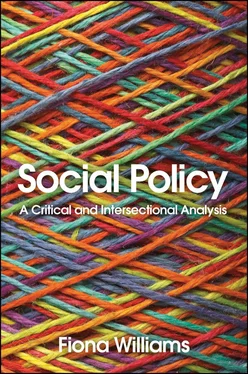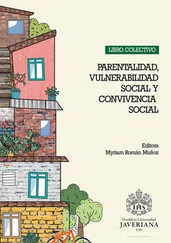The adjective Black (capitalized) is often used as a political attribute rather than a description (Black Lives Matter). However, in analysis of race, racism and racialization it is important to recognize multiple identities and heritages which are constituted through experience, geographical and cultural heritage, faith and national citizenship (such as African Caribbean, Black British or British Asian). As well as people from the countries of Asia, Africa, the Caribbean, Central and Latin America, the Middle East and Oceania, historically and today in the UK racism is directed at Gypsies and Travellers, Jewish, Turkish and Irish people, and recent migrants from Central and Eastern Europe.
Recently the use of the term BAME (Black, Asian and Minority Ethnic), or BME (Black and Minority Ethnic), has become standard by public bodies and services and in statistical data. It has replaced ‘ethnic minorities’ as an administrative category. Its advantage is that it recognizes a degree of multiplicity, and, in the use of the phrase ‘minority ethnic’ (rather than ‘ethnic minority’), it acknowledges that all people, not just minorities, have an ethnicity. The downside is that, in becoming an administrative category, it tends to a static and homogenizing implication devoid of political meaning. Avoiding this means using the term in a context which refers to its multiplicity and political meaning. The term ‘people of colour’, which derives from the US, is preferred by some to acknowledge their social and political collectivity. In this book, I have used different terms in different contexts and, when referencing studies or statistics, I have followed the terms used in the source material. I have employed the adjective ‘white’ except in those places where the source material has referred to ‘White’ as a group. Notes on equality and diversity in use of language can be found on the British Sociological Association website: www.britsoc.co.uk/Equality-Diversity/.
Welfare states face profound challenges. Widening economic and social inequalities and insecurities have been intensified by the post-financial crisis austerity politics, sharpened by the rise in ethno-nationalism, and cruelly exposed by the Covid-19 pandemic. At the same time, recent decades have seen a resurgence of social justice activism at the local and transnational levels. Major global movements such as Occupy, Extinction Rebellion, Black Lives Matter, #MeToo and Global Women’s Strike have been as compelling in their necessity as in their massive mobilizations. Yet the transformative power of feminist, anti-racist and post-/decolonial, and ecological thinking is still relatively marginal to core social policy theory, while other critical approaches – around disability, sexuality, migration, childhood and old age – have found recognition only selectively.
This book offers an analysis that attempts to bring many of these issues together. Combining critical and intersectional approaches with ideas to have emerged out of contemporary struggles for social justice, it examines key issues and themes in social policy today. These range from questions of agency; the constitution of welfare subjects through austerity; the social, ethical and contested relations of welfare; global crises; and the transnational social and political economy of care. The approach informs and connects critical and intersectional analyses of multiple social inequalities and social justice with questions of political practice: not only how to ‘do’ social politics but also how our lives together might be better lived.
The analysis has three integral elements. First, I argue that we need to contextualize the development of neoliberal and austerity welfare not only in terms of the crisis of financialized capitalism but also in terms of the interconnected global crises of care and social reproduction, the environment and climate change, and the external and internal racializing of national borders. Together these threaten human and planetary sustainability while also generating multiple and intersecting inequalities. The second element translates this global context into national social policy through an analysis of the dynamics of intersecting social relations of power; these are articulated through the meanings, materialities and policies attached to family, nation, work and nature. Third, I explore how the contestations for social justice that these crises provoke provide new political ethics and prefigurative politics, especially in the understanding of new formations of interdependence, relationality and democracy, solidarity, and humanity. These provide a guide to consider the transformative possibilities for a future eco-welfare commons.
There is for me a sense of déjà vu about the marginality of radical and transformative thinking in mainstream social policy. In 1987 I published an article entitled ‘Racism and the discipline of social policy: a critique of welfare theory’ (Williams 1987). This outlined a new analysis of how imperialism, colonialism and nationhood had framed early social policy and the post-war welfare state; how this analysis should be informed by the struggles of racialized groups; and how these were intersected by class and gender relations. Social Policy: A Critical Introduction: Issues of ‘Race’, Gender and Class , followed, in which I argued that these three social relations needed to be interconnected and central to an analysis of social policy. I offered an analytical framework of family, nation and work through which these social relations were articulated (Williams 1989). I was one of many scholars in the UK at the time pursuing such analyses shaped, as we were, by the strength and limitations of Marxism reflected in the new social movements of the time, especially around feminism, black feminism, anti-racism, and gay and lesbian liberation (Weeks 1977; Wilson 1977; Hall et al. 1978; Lewis and Parmar 1983; Amos et al. 1984; Bhavnani and Coulson 1986; Phoenix 1987; Anthias and Yuval-Davis 1992; Brah 1996).
Fast forward thirty years. In July 2019 the UK’s Social Policy Association published a commissioned report: The Missing Dimension: Where Is ‘Race’ in Social Policy Teaching and Learning? (Craig et al. 2019; see also Cole et al. 2020). The report examined curricula of social policy courses, journal and conference content over the previous five years, and BAME (black, Asian and minority ethnic) representation among students and staff. In terms of the curriculum and literature, the report found the lack of focus on race and racism to be ‘dismal’. In terms of staff and student representation, this was overwhelmingly white. BAME students did not find the curriculum relevant to their concerns. This repeated the point made earlier by Craig: ‘It is still not uncommon for mainstream social policy texts to treat debates on “race” and racism as marginal’ (Craig 2007: 610). This is in spite of the fact that, as I argue in this book, since that time policies around the racialization of national borders, bordering practices within the UK, and a ‘hostile environment’ have all had detrimental outcomes on the citizenship rights and social and economic inequalities of minority ethnic and migrant groups. These have had specific gendered effects but have also provided a policy template for the abjection of other welfare subjects (Tyler 2013; Mayblin et al. 2019; Humphris 2019). Alongside this, there has been a rise across many regions of nationalist, anti-immigration movements and parties in which welfare chauvinism – blaming immigration for declining social provision – has been a central theme. Social policy as a discipline is not alone in its neglect. A Royal Historical Society report (Atkinson et al. 2018) arrived at similar conclusions. British criminology has also been held to account (Phillips et al. 2020), as has sociology (Hesse 2014). It is in these contexts that academics and students in the social and political sciences and humanities have recently put forward demands to ‘Decolonise the Curriculum’ (Bhambra et al. 2018; Rhodes Must Fall 2018).
Читать дальше












